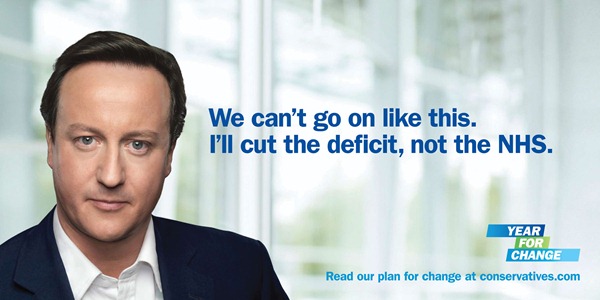Ring-fencing the budget
The debate over whether to protect health spending.
As everyone needs the Health Service at some point in life, it is the most expensive and contentious part of the Executive’s budget. Due to devolution, David Cameron’s promise (above) only covers England so the Coalition’s financial plans could mean health cuts elsewhere.
The June Budget warned that protecting health and overseas aid (£114.1 billion in total) could see 25 per cent cuts over four years for other Whitehall departments. An Oxford Economics and ERINI study indicates that if health were protected locally, cuts in other departments would virtually double from 8.4 per cent over five years to 15 per cent.
The Department of Health, Social Services and Public Safety (DHSSPS) was originally allocated £4,491.8 million for 2010-2011. Out of this, £3,206 million was for the Health Service’s running costs.
Revised spending plans for 2010-2011 raised the overall budget to £4,504.6 million.
Michael McGimpsey has consistently called for increases but Peter Robinson’s main priority is economic: keeping and creating jobs. He wants the Executive to agree a strategic approach rather than “salami-slicing” budgets, as the Coalition’s approach will “undoubtedly mean difficult and painful decisions.”
“We hear time and time again that the key priority from the public’s perspective is health,” a UUP spokeswoman remarked. “Making budgetary decisions necessitates doing the right thing in difficult times, and with an ageing population it has never been more important that we are able to rely on a good health service.”
The alternative, she warned, was “deeply worrying” with patients “left in unnecessary pain and distress” and the most vulnerable suffering.
Most of those demands are also advanced by the Greens. As MLA Brian Wilson explained, they want current expenditure on health and social services to be ring-fenced, but other DHSSPS areas “subject to the same consideration as other departments.” Wilson accepts that this would put a greater burden on other services but opposes the size and timing of the overall cuts as Northern Ireland is “still in recession.”
The SDLP supports ring-fencing funding for clearly identified front-line services. “All departments can make savings by cutting red tape and bureaucracy and payment of bonuses to high earners,” health spokesman Tommy Gallagher said. The prescriptions budget should also be “closely scrutinised.”
Alliance is also sceptical about ring-fencing all health spending as it sees room for more savings. “It is, of course, open to the Executive to ask for a lower level of efficiencies in health than in other areas, which Alliance does believe should be considered,” finance spokesman Stephen Farry commented.
Kieran Deeny, a GP and MLA, supports the ring-fencing call as long as any extra money goes to the front-line e.g. A&E nurses and ensuring enough consultants. Sinn Féin declined to comment.
Elsewhere, the Scottish Government is keen to highlight its “excellent examples” of efficiency and innovation within health. In Wales, the focus is on protecting “essential front-line services”. Nowhere has been ring-fenced in the Republic’s drive for savings and all Irish Cabinet ministers are being asked to earmark more cuts as its Budget approaches in December.






